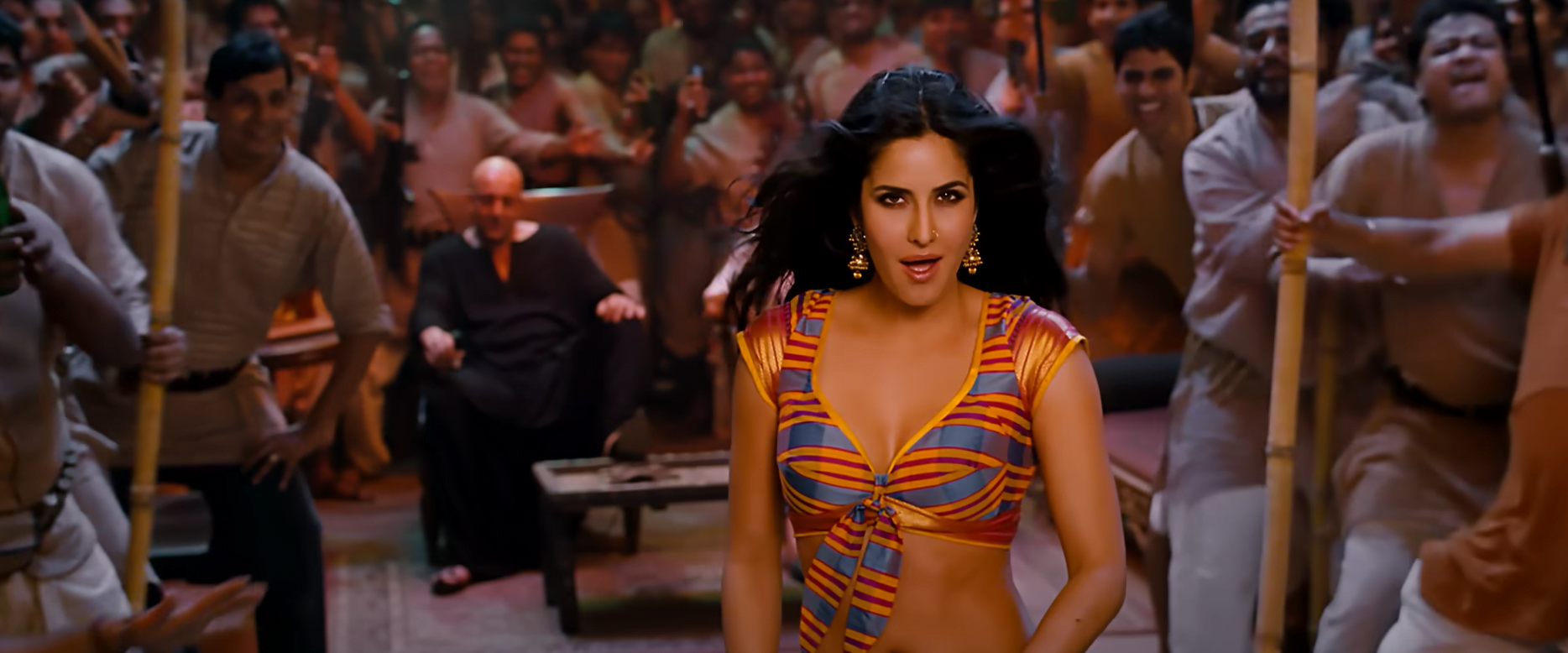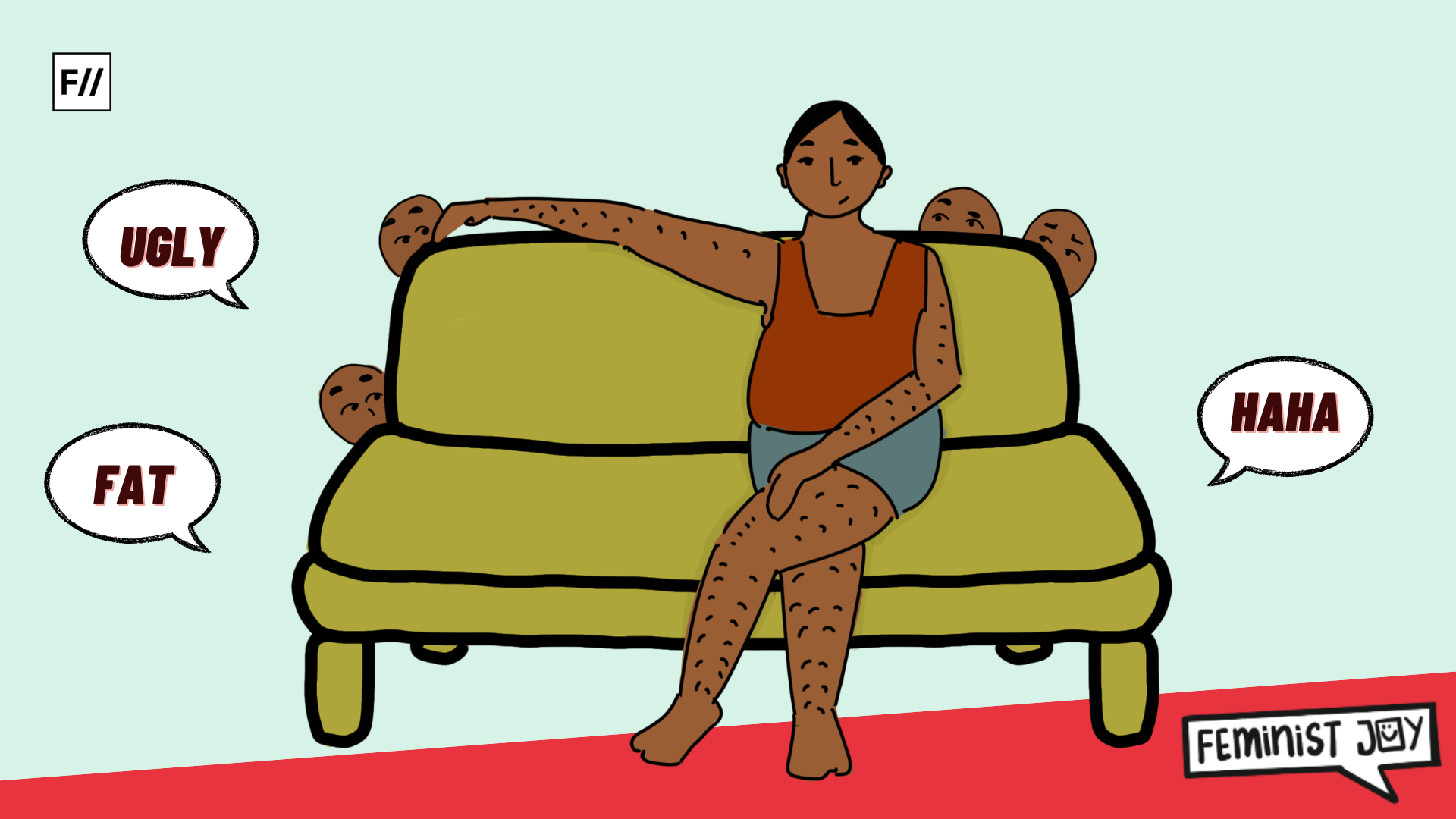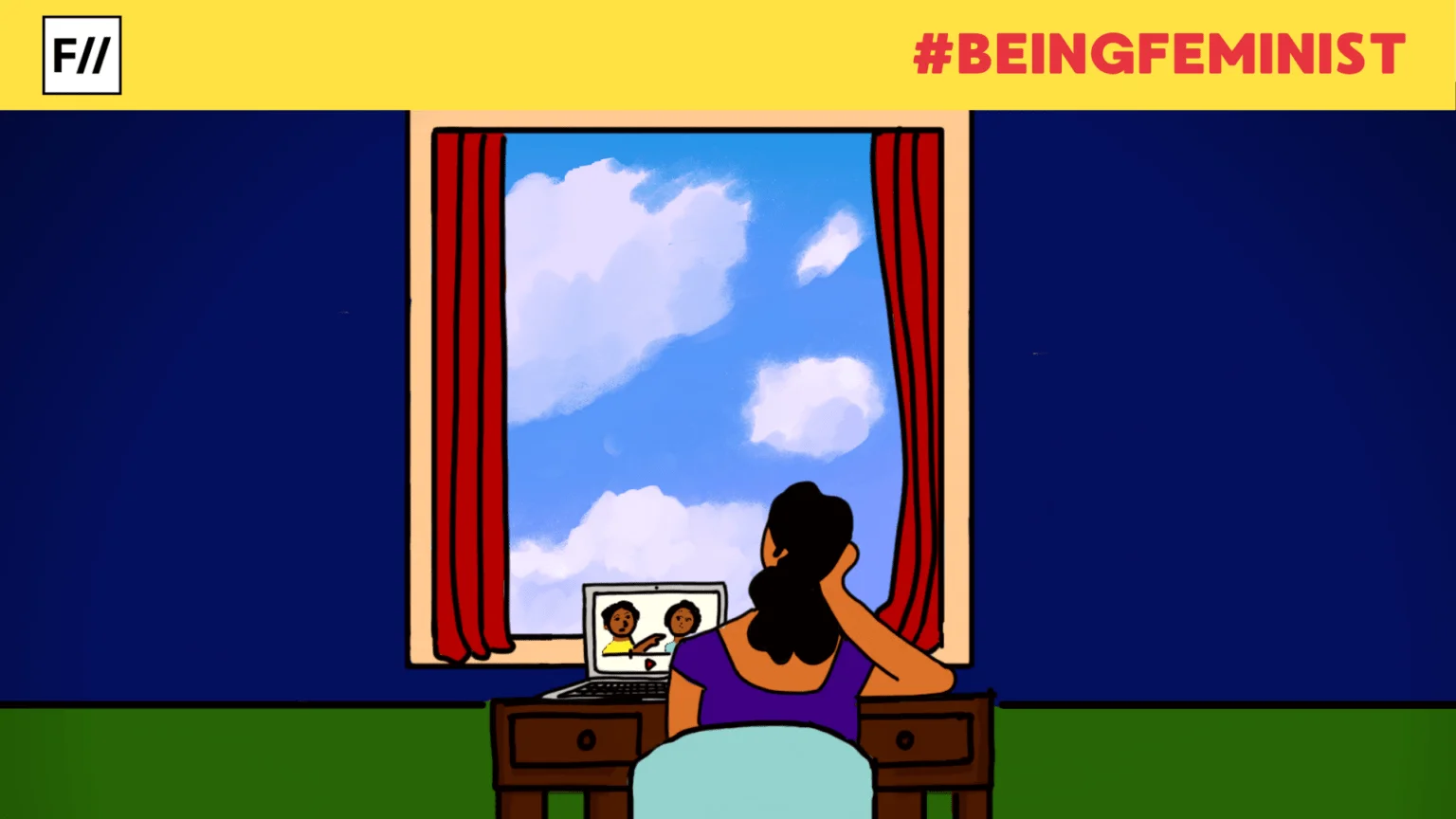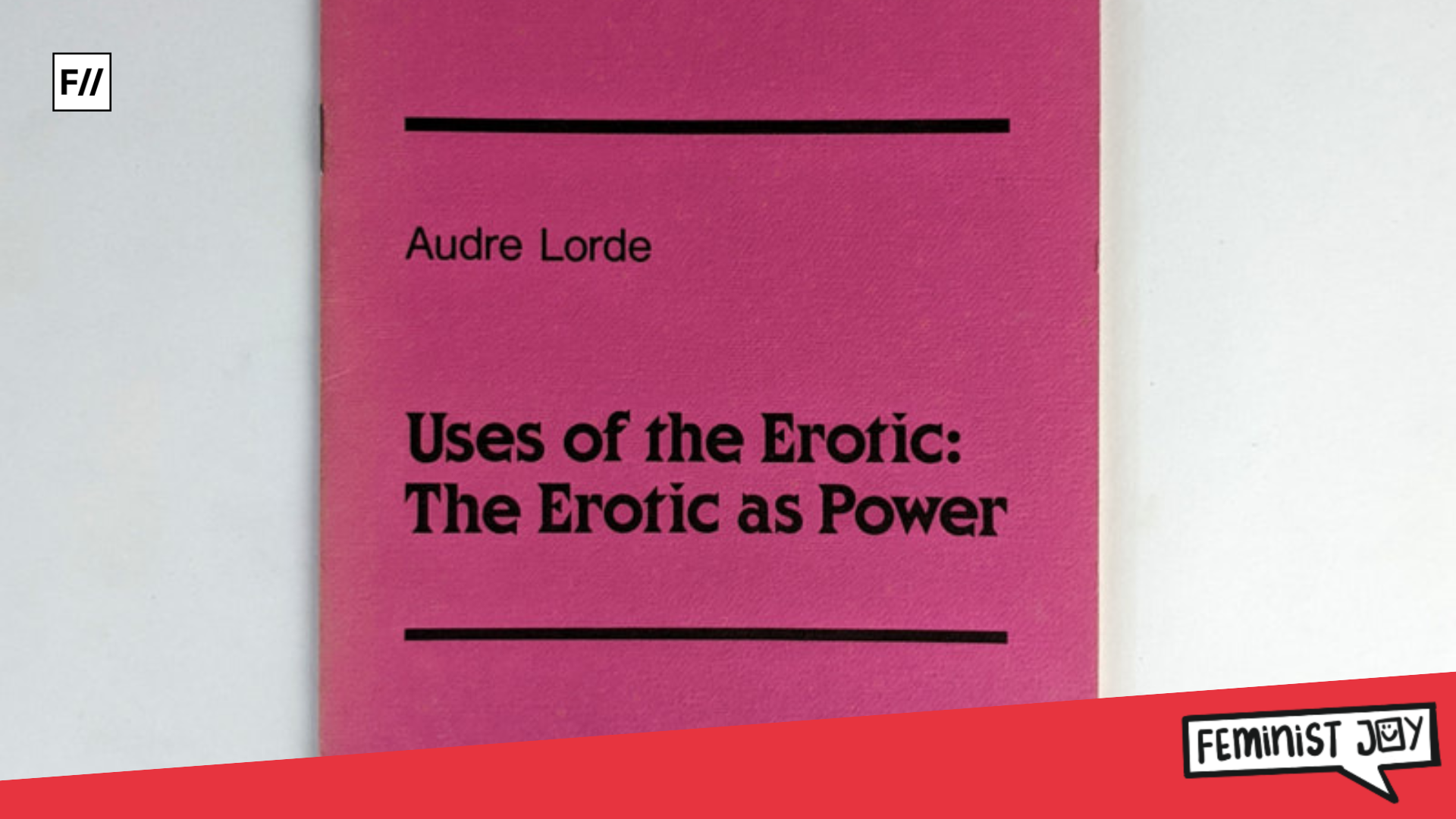Despite the deteriorating quality and run-on-the-mill production of Bollywood songs in recent times, I simply cannot prune Bollywood music out of my playlist. I knew a handful of Hindi songs as a child, primarily those that the heteronormative social circles around imprinted on me. There was mostly always a binary dynamic in those songs, especially the love songs. Is it the hero wooing the heroine or is it one of those sizzling lewd songs you aren’t supposed to hear, and more importantly watch?
Men and women were supposed to follow certain social cues in these songs and there was supposedly only one way in which these songs were to be received, sung and danced to, all depending on what your gender was.
Oftentimes, we picture ourselves as the characters of these songs, that’s how the song gets inside your head and you envision imaginary scenarios that can bring you a lot of momentary joy, but in the long run, when pitched against reality, can prove disappointing, especially because you are always assigned ‘roles‘ in advance.
Bollywood films and their songs are paradigm setters for gender roles in more ways than one could imagine. Film culture plays a life-altering role in the life of a common Indian, thus shaping our society’s perception of what’s normative. More than adults explicitly dictating how gender roles work in the binary society, it is songs that instil the rigid sense of gender expression and influence the young mind.
Subconsciously, we believe and absorb what happens on the big screen, considering Bollywood’s cinematic potency, and on that basis, we make judgments of what’s right and wrong. I’ve always noticed how certain choreographed steps and festive occasions are reserved for women to exclusively express themselves and a man entering this territory is only because perhaps he is a ‘younger brother figure,’ or is having a mischievous moment, but never because he genuinely feels like doing the womanly step and is accepted in this circle of womanhood.
Similarly, the heroine dressing up as the man, putting up a fake moustache, as Alia Bhatt’s character does in the song ‘Gulaabo,’ from ‘Shaandar,’ is yet another comedic attempt that has its roots in queerness. Queer expressions and cross-dressing is only tolerated when it is for ‘fun,’ but the second it gets real, heteronormativity draws a line.
In public spaces like Ganpati or Navratri dances, I found myself standing in the corner, extremely conscious about my femininity, repulsed by this rigid binary. I discovered that it is often in moments of artistic zenith, as one dances or sings or paints or writes, that the queerness within bubbles the surface, but this queerness is mostly always met with resistance, a predicament that suffocates queer artists.
I brought myself to enjoy Bollywood songs privately and in my way, I didn’t enjoy the item songs because an hourglass figure danced to a gang of men, I enjoyed it because I craved the attention of the female figure. This binary, which I became of, was a tormenting pleasure, bitter-sweet in all essence.
I began listening to songs sung by female characters for their male counterparts, songs like Bahara and Badmaash Dil and many more of Shreya Ghoshal’s blessings. Here, the male was the subject being sung to, but then oddly, I didn’t want to be the muse in this case. Here, I wanted to pour my heart out to the man, all the while not identifying as a ‘woman,’ but surely singing through her voice—that was the beauty of it, a man singing through the woman’s voice. Then there are songs like ‘Tu Hi Junoon,’ ‘Tere Vaste,’ ‘Mere Rashke Kamar,’—mostly all male-sung songs romanticising the woman, but here I wanted the man to sing to me, ‘me‘ still identifying as a man.
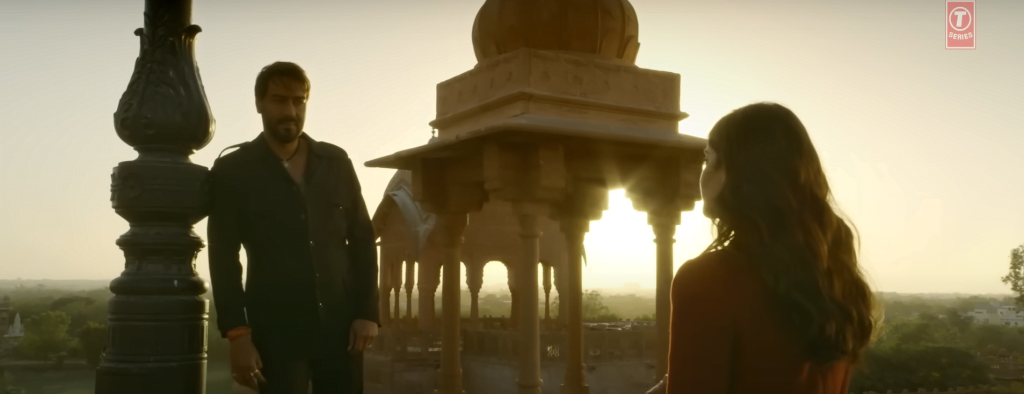
Now why is this happening? I asked myself. What initially felt like a bitter pill to swallow; that queers have no space and recognition in the glamorous garden of romance in mainstream Bollywood music and that I will never my imaginations put to reality, slowly became a blessing in disguise. For some songs, I take up a very masculine viewpoint, typically heteronormative, reinforcing the straightness that I believe exists in me. Lyrics surely do matter.
Just because I am queer doesn’t mean there is only bitterness in these love stories. I felt blessed that I could conceive myself in both spectrums of the binary—and that gave me such a diverse experience of joy. I can love and be loved, by both women and men and for women and men as well.
Some songs have gender-neutral displays of affection, like ‘Tum Se Hi,’ that are simply about humans soul-serenading other humans; some are very gendered, where ‘he‘ has to feel love in a manly way—mostly bold, untethered and mad, and she has to feel it back with a sense of patriarchal respect, she has to blush and run-away only for him to chase her, perhaps like the song ‘Aaj Din Chadheya.’
While these narratives are super heteronormative, rancorously betraying and excluding at times, I realised that just because I am queer doesn’t mean there is only bitterness in these love stories. I felt blessed that I could conceive myself in both spectrums of the binary—and that gave me such a diverse experience of joy. I can love and be loved, by both women and men and for women and men as well.
Of course, it pains me to admit that my understanding of the self comes from certain compromises and endorsement of conservative representation, yet nevertheless, I choose to call the glass half-full, at the same time desiring adequate and nuanced queer representation on screen. Thus, Bollywood songs became a medium for me to not only realise, digest and accept the queer struggle within me but also understand that anything which gives me such sheer joy cannot possibly be a curse as society would like to narrativise.
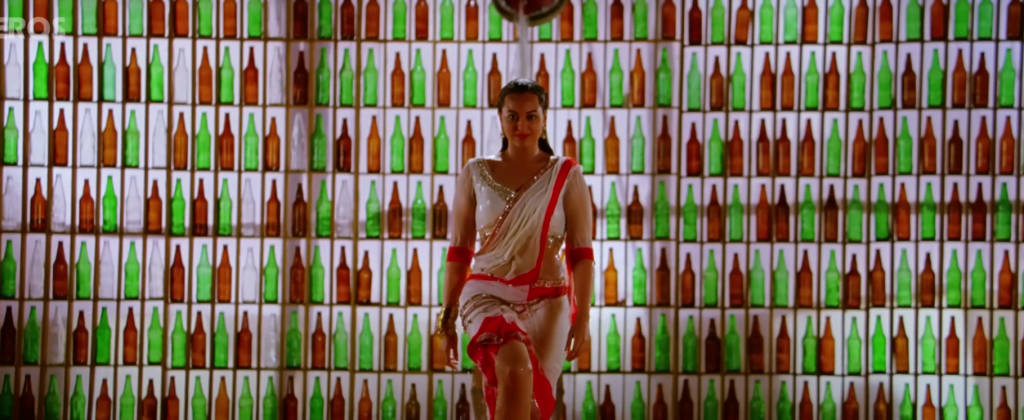
There are songs we would call somewhat raunchy like ‘Gandi Baat‘ or ‘Chinki Kamar,’ where the hero, high on testosterone, comes off as a toxic red flag or a rugged pauper, but the idea of his macho-ness, to my surprise, was aspirational to me. After I removed my lens of prejudice about masculinity, curbing the character to the screen, and allowing only the song to permeate, I became more comfortable with my masculinity.
Similarly ‘Man Mahona,’ from Jodha Akbar, a song dedicated to Lord Krishna, a very feminine, Mirabai thing to do in popular culture, revived a religious queerness in me, despite my atheistic tenets. How would it feel to be the Radha to a Krishna? I questioned enclaves of myself only due to queer outbursts that Bollywood music triggered.
Music and pop culture are mirrors of who we are and who we would want to be in society and it is a form of artistic expression. While the heteropatriarchy sets rigid rules to express this ‘art‘ and malevolently labels queerness as ‘western,’ true art does not stop one from being who they are. Music has genuinely helped me restore my sense of self when I had nobody to turn to.
I’m sure a straight male wouldn’t be capable of feeling so fervently the masculine and the feminine musical quality the way I can—Bollywood music is no longer homophobic to me.
